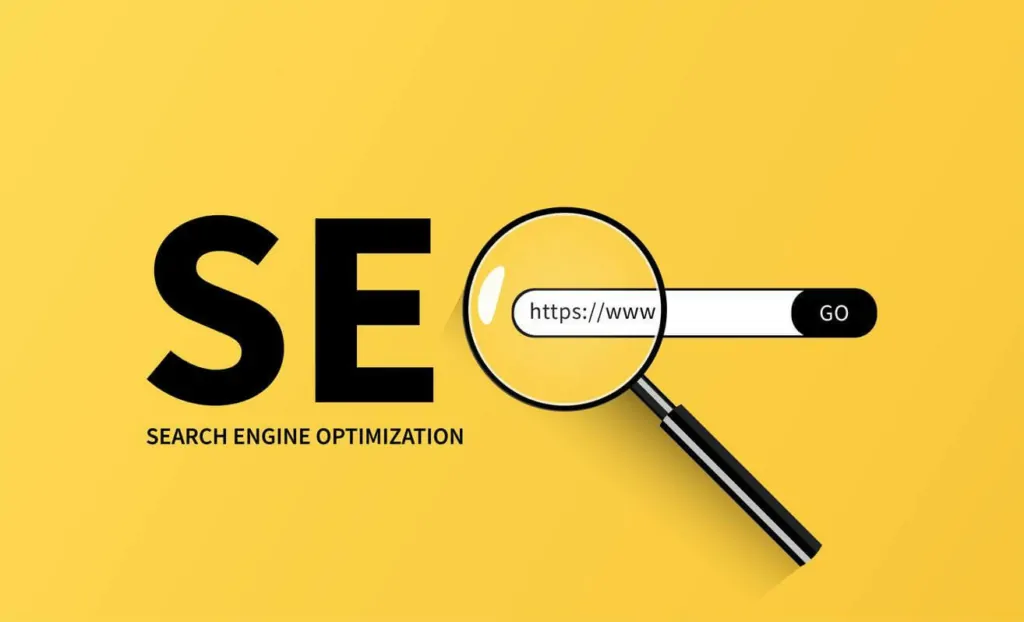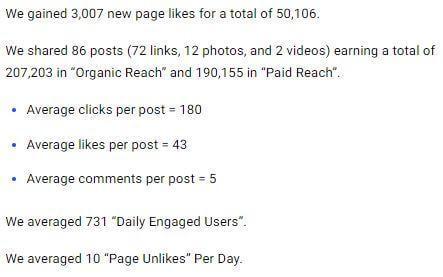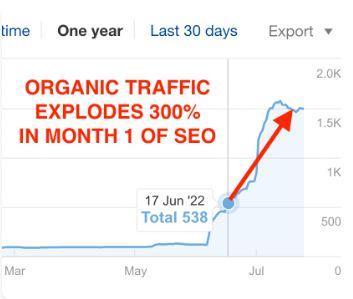90% of startups eventually fail, and 10% of newly launched businesses are not likely to survive the first year, according to the latest data[1].
One of the contributing factors to this failure is a poor marketing strategy. This is why search engine optimization, or SEO for startups, can help you build a strong foundation to generate leads, boost awareness, increase revenue, and create your mark in the tough, competitive market.
In this guide, we will discuss SEO for startups and its benefits and provide valuable insights and actionable steps to achieve success in 2025 and beyond.
What is SEO for Startups?
SEO for startups is all about improving a new business’s website to be visible to potential customers searching for your products or services in search engine result pages (SERPs) and driving organic traffic to your website.
With over 5.35 billion active internet users worldwide, according to Statista[2], SEO goes beyond just driving traffic; it’s about attracting the right traffic that converts into leads and paying customers.
Also, there are over 1.8 billion websites on the internet[2], and each one is vying for the attention and clicks of the same users, making it tough for startup businesses to break even in the competitive industry. SEO for startups can break through the competition, help you rank higher in the SERPs, and drive organic traffic to your website.
![Statista report on the number of internet and social media users worldwide as of April 2024 to emphasize the importance of SEO for startups to reach a vast number of online users[2].](https://nuoptima.com/wp-content/uploads/2024/07/Statista-report-.png)
Benefits of Integrating SEO for Startups

Effective startup SEO helps establish your brand in a competitive ecosystem, boost your reputation and authority, and scramble users to your front door. According to Backlinko[3], the first result in Google’s organic search results has an average click-through rate (CTR) of 27.6%. In comparison, the tenth result has a CTR of only 2.4%. This means SEO for startups can help improve your rankings. The higher your website ranks on the search results, the higher your credibility grows.
Investing in SEO for startups also yields long-term results without breaking the bank. Unlike paid advertising, where you have to pay to gain visibility. SEO continues to drive traffic even after you’ve stopped spending.
10 Proven SEO Strategies for Startups
We will break down ten tactics for startup SEO, showing how even a bootstrapped startup can leverage SEO to reach its target audience.
1. Start With a Strategy: Your SEO Blueprint
An SEO strategy is a plan you map out to create, optimize, and promote your content to improve its visibility in SERPs and generate more organic traffic to your website. It helps define your target audience, outlines the keywords you’ll target, and establishes your content roadmap.
So start by conducting a comprehensive SEO audit to identify and rectify issues that may be hindering their website’s performance. Tools like Screaming Frog and Google Search Console can evaluate your overall website health for optimization.
Next, develop detailed buyer personas. Understanding your ideal customer is crucial for crafting content that resonates. So, identify your target audience’s pain points, preferences, and search behaviors to create personalized content that addresses their needs and engages them meaningfully. Use tools like surveys, customer feedback, and analytics to refine your personas and ensure they remain relevant.
Also, curate a strategic list of keywords to boost your visibility. Start by conducting thorough keyword research to identify terms your target audience uses when searching for solutions you offer. Incorporate these keywords naturally into your content, metadata, and URLs. Regularly update your keyword list based on performance and industry trends to maintain a competitive edge.
2. Set Clear-Cut SEO Objectives for Measurable Growth
Clear startup SEO objectives are essential for measurable growth. Begin by identifying your primary goals, such as increasing organic traffic, improving search engine rankings, or boosting conversion rates. For instance, you might aim to increase organic traffic by 30% within six months or rank on the first page of Google for five high-impact keywords relevant to your industry. Defining these objectives provides a roadmap for your SEO strategy and helps you stay focused on achieving tangible results.
According to a HubSpot study, companies with a clearly defined SEO strategy are likelier to report it as “very successful.” To ensure your SEO for startups’ efforts yields results, establish effective SEO objectives with the following tips:
- Define Specific Goals: Your SEO objectives should be specific and aligned with your overall business goals. For instance, instead of a vague goal like “increase traffic,” set a specific target such as “increase organic traffic by 20% in the next six months.” Consider incorporating targeted keyword strategies related to your niche, like “business management assignment help,” to enhance your visibility among users seeking relevant academic assistance. This approach ensures your objectives stay focused on areas that directly impact your business growth and service offerings.
- Ensure Measurability: Your objectives should be measurable, allowing you to track progress and determine success. Use key performance indicators (KPIs) such as organic traffic, keyword rankings, conversion rates, and bounce rates to measure your SEO efforts.
- Set Attainable Goals: While ambitious goals are great, ensure they are realistic and attainable based on your current resources and market conditions. Setting unattainable goals can lead to frustration and demotivation.
- Make Objectives Relevant: Your SEO objectives should be relevant to your business and its overall mission. Ensure that each objective supports your broader business goals and contributes to your startup’s success.
- Time-Bound Objectives: Set a clear timeframe for achieving your SEO objectives. This creates a sense of urgency and helps you plan and execute your strategies effectively. For example, aim to “improve the average session duration by 15% within three months.”
- Track Progress Regularly: Use SEO tools and analytics platforms to track your progress toward your objectives. Regularly reviewing your performance allows you to make necessary adjustments and stay on track.
- Evaluate and Adjust: At the end of your specified timeframe, evaluate the success of your SEO objectives. Analyze what worked well and what didn’t. Use these insights to adjust your strategy and set new objectives for continuous improvement.
A blog post by Neil Patel reports that Mint used a clear, measurable SEO goal to create a strong product and market it effectively. They grew to 1.5 million users and sold for $170 million within two years. They broke this down into smaller goals, like increasing backlinks from high-authority websites and publishing a certain number of optimized blog posts monthly.
3. Analyze Your Competition
Understanding your competition’s SEO strategies provides valuable insights. It reveals the keywords they’re targeting, the types of content they’re creating, and the backlinks they’re acquiring. You can then use this information to identify opportunities and differentiate yourself.
For instance, a startup might discover that its competitors are neglecting long-tail keywords or haven’t optimized their websites for mobile. These keywords typically have low search volume, low competition, and high conversion rates. This presents an opportunity for the startup to gain an edge in these areas.
SEO tools like Ahrefs or SEMrush help conduct comprehensive competitor analysis for your startup business. They give you insights into your competitors’ SEO strategies, including the keywords they’re targeting, the types of content they’re creating, and the backlinks they’re acquiring.
4. Conduct Thorough Keyword Research

Keywords are the words and phrases people use to search for information on the web. They are the bridge between what your audience searches for and what your website offers. Thorough keyword research is a fundamental aspect of SEO for startups, as it helps you identify the terms your target audience is using, allowing you to tailor your content and optimize your website accordingly.
Here’s how to find the right ones for your startup, a critical step in SEO for startups:
- Brainstorm: Start by identifying a list of relevant topics to your startup. These topics should be broad enough to generate specific keywords but specific to your business. Consider your target audience’s problems and needs and how your product or service can solve them.
- Use Keyword Research Tools: Tools like SEMrush, Ahrefs’ Keywords Explorer or Google Keyword Planner can provide valuable data about the keywords related to your topics. They can show you the search volume (how many people are searching for this term), competition (how many other websites are ranking for this term), and even suggest related keywords you might not have considered. These tools are invaluable for SEO for startups like yours because they provide insights into the search landscape and help identify high-potential keywords.
- Seed Keywords: They are the starting point of your keyword research. These are broad terms related to your industry, products, or services. For example, consider you are a a B2B SaaS company that provides cloud-based project management software for small to medium-sized businesses then for your business, some of the seed keywords might include “project management software,” “cloud-based project management,” and “task management tools.”
- Target Long-Tail Keywords: Long-tail keywords are longer, more specific keyword phrases that often have lower search volume but higher conversion rates. They are less competitive and can help you attract highly targeted traffic. For example, “cloud-based project management software for small teams” and “best task management tool for remote work.”
-
Analyze Search Intent: Search intent is why someone searches for a particular term.
- Are they trying to learn something (informational intent)?
- Are they looking for a specific website (navigational intent)?
- Are they looking to make a purchase (transactional intent)?
- Or are they looking for the best product for their need? (commercial intent).
Understanding the search intent can help you tailor your content to meet the searcher’s needs, a crucial step in SEO for startups.
Additional Tips: When performing keyword research, consider how your content falls into the buyer’s stage and search intent. This will inform your keyword usage and the type of content you’ll create.
| Stage in The Buyer’s Journey | Suggested Content |
| Awareness | Blog posts, video, homepage |
| Consideration | Buyer’s guides, case studies, about page |
| Decision | Product demos, comparison tools, product or pricing, and contact pages. |
5. Create High-Quality Content for Your Product and Service
High-quality content engages your audience, encourages them to spend more time on your site, and signals to search engines that your website is a valuable resource. So, create informative, well-researched, original content that addresses your audience’s needs and interests.
To create content that resonates with your target audience, you need to understand their pain points, preferences, and questions. Conduct surveys, engage with your audience on social media, and analyze customer feedback to gain insights.
Your content should offer valuable information and solutions to your audience’s problems. This could be through blog posts, how-to guides, case studies, whitepapers, or product demonstrations. Ensure each piece of content is informative, actionable, and relevant.
The content should be readable and clear for the common people to understand. Also, the tone and style, i.e., Formal, Conversational, etc., need to match the audience’s specific needs and preferences. To seamlessly achieve such perfection, utilize paraphrase tool to refine content for clarity and tonal consistency with almost no effort.
To emphasize the importance of SEO for Software-as-a-Service (SaaS) startups, we look at Buffer, a company that built its brand on high-quality, informative blog content. They consistently publish articles that address their audience’s pain points and provide actionable solutions. This content strategy helped their page to gain significant results, according to their Facebook performance report, as pictured below.

6. Use Content Strategies That Align Your Content With SEO and User Intent
Understanding search intent is key to delivering relevant content to your audience. Are people searching for information, looking to buy something, or simply browsing? Align your content with search intent to increase your website ranking for those specific queries. Also, being an essential aspect of SEO for startups, it ensures that your content is seen by the right people at the right time. Here’s how:
- Know Your Audience: Create detailed buyer personas to understand their needs, pain points, and interests. This will help you create content that resonates with them.
- Create a Content Strategy Map: Develop a content strategy map that outlines the different types of content you will create based on user intent. For example, create blog posts and guides for informational intent, landing pages for transactional intent, and comparison articles for commercial investigation intent.
- Use Topic Clusters and Pillar Pages: Organize your content into topic clusters around a central pillar page. A pillar page covers a broad topic in-depth, while cluster content delves into subtopics related to the main topic. This structure helps improve your site’s SEO and provides a better user experience.
- Quality Over Quantity: Focus on creating high-quality, in-depth content that provides real value to your audience.
- Promote Your Content: Share your content on social media, email newsletters, and relevant online communities to increase visibility and reach. As an essential part of SEO for startups, promoting your content will help to attract more backlinks and drive more traffic to your website.
If you’re short on how to implement the above strategies, you can take the help of a SaaS content marketing agency like NUOPTIMA. At NUOPTIMA, we excel at producing high-quality content that attracts and engages the target audience. We have well-documented content strategies focusing on creating and distributing valuable, relevant, and consistent content. We understand the importance of content marketing in SEO for startups, and our success stories inspire other startups looking to grow their online presence.
7. Carry out On-Page Optimization

On-page SEO is about making your website pages attractive and informative to potential customers and search engines. If correctly done, it can make your website more accessible to find, rank higher in search results, attract more visitors, and ultimately drive more sales or desired actions. Some tips include:
- Meta Tags (Title & Description): These snippets in search results are your first impression. Making them compelling and keyword-rich is a good practice. We highly recommend 50-60 characters for title tags and 150-160 for meta descriptions, especially when optimizing SEO for startups.
- URL Structure: URLs are web addresses that tell your browser where to find your website or page. They provide humans and search engines with an easy-to-understand indication of the destination page. So, keep it concise and descriptive, and include relevant keywords. For instance, a URL like “https://www.yourwebsite.com/online-gateway-platform.” is good.
- Header Tags (H1 and H2): Use a clear hierarchy of headers to organize your content and make it easier to read. Header tags provide structure and context for your article.
- Internal Linking: Strategically link to other relevant pages on your website to keep users engaged and guide them through your content. Internal links help Google find, index, and understand all of the pages on your site, enhancing SEO for startups.
Our professional on-page SEO services offer startups a strategic approach to optimizing their website’s on-page elements to effectively ensure that each web page targets specific keywords and meets user search intent.
8. Fine-Tune Your Website’s Infrastructure With Technical SEO
Technical SEO involves optimizing the infrastructure of your website to ensure search engines can crawl and index your content efficiently while enhancing user experience. Key areas include:
- Crawling and Indexing: Ensure search engines can quickly discover and understand your website’s pages. Fixing broken links, duplicate content, and slow page speed can significantly improve your site’s SEO.
- Website Speed: Optimize image sizes, leverage browser caching, and consider a content delivery network (CDN) to improve loading times. A fast-loading website is crucial, especially for mobile users. According to a study by Unbounce, nearly 70% of consumers admit that page speed impacts their willingness to buy from an online retailer[4].
- Mobile Responsiveness: Over 50% of global website traffic comes from mobile devices, according to Statista[5]. So, ensure your website adapts seamlessly to different screen sizes and devices. Implement responsive design to ensure your website looks and functions well on all devices. Use Google’s Mobile-Friendly Test to identify and fix mobile usability issues.
- Site Structure: Organize your website in a logical hierarchy using clear navigation and internal links, which is essential for SEO for startups.
- Implement Secure Sockets Layer (SSL): Security is a ranking factor for search engines. Ensure your website uses HTTPS by installing an SSL certificate. This helps protect user data and builds trust with your audience.
- Create an XML Sitemap: An XML sitemap helps search engines understand the structure of your website and find all your important pages. Generate an XML sitemap and submit it to Google Search Console.
- Fix Broken Links and Redirects: Broken links and incorrect redirects can harm your SEO and user experience. Regularly check for and fix any broken links or 404 errors. Use 301 redirects to permanently redirect outdated or moved pages.
9. Answer the Questions Your Audience Is Asking
53% of consumers say they always research before purchasing to make the best choice[6]. So, pay attention to the questions your audience is asking, whether it’s through online forums, social media, or customer support interactions.
Create content that directly addresses these queries, providing valuable solutions and demonstrating your expertise. This is equally an engaging and effective way for startups to improve SEO because it helps you rank for relevant search queries and attract more organic traffic.
Develop detailed FAQ pages that address common questions related to your products, services, or industry. This not only helps your audience find answers quickly but also improves your chances of appearing in featured snippets.
Encourage user engagement by responding to comments, questions, and feedback on your website and social media channels. This builds trust and shows that you value your audience’s input.
A pet insurance startup might create a blog post on “What to Look for in a Pet Insurance Policy” or “How to Choose the Right Vet for Your Pet.” These articles provide valuable information to pet owners and can help the startup rank for relevant search queries.
10. Use International SEO to Expand Your Global Footprint
International SEO involves optimizing your website to attract and engage users from different countries and languages. Effective global SEO services and international SEO services for startups can open doors to new markets and significantly increase your brand’s reach. For example, Netflix uses different websites for different regions, each tailored to the local language and preferences.

Key Strategies:
- Hreflang Tags: Use hreflang tags to signal to search engines which language and region each page is intended for. For instance, Airbnb offers a seamless experience for users worldwide by using hreflang tags, localizing content, and adapting to local currencies.
- Translation & Localization: Don’t just translate your content; adapt it to your target audience’s local culture and preferences. In a Global Multilingual CX Report survey, 64% of consumers would pay a higher price for a brand product that offers customer experience in their native language[7]
- International Site Structure: Decide whether to use a single domain with subdirectories, subdomains, or country-code top-level domains (ccTLDs) based on your specific needs and target markets. Choosing the right website structure is critical for SEO for startups with global aspirations, as it can affect how search engines index and rank their content in different regions.
SEO for SaaS Startups: Specific Tips for Success
In the SaaS industry, there are unique needs for SEO for startups that go beyond the basics. First, define what success looks like for your SaaS company. Is it higher organic traffic, more sign-ups, or increased conversions? Establish KPIs that align with these objectives and track your progress regularly.
Pro Tip: The video below by Alexej Pikovsky offers a comprehensive guide on common mistakes SaaS startup founders make and how they can avoid them:
Common SEO Pitfalls That Startups Should Avoid
Let’s explore five common SEO mistakes for startups to avoid that can hurt their optimization and startup SEO success.
| Common Mistakes | Description |
| Keyword Stuffing | Keyword stuffing is the unnecessary overuse of keywords in your content, making it unnatural to read. Instead, use keywords naturally and strategically throughout your content. A 1-2% keyword density is ideal for maintaining readability while still showing relevance to search engines. |
| Duplicate Content | Having the same content on multiple pages of your website or copied from other sources is a big red flag for search engines. It creates confusion and dilutes SEO for startups’ ranking. So, ensure you create unique and original content for your website. |
| Broken Links | Broken links (404 errors) are dead ends on your website, where visitors click them but land on error pages. This frustrates users and harms SEO for startups. So, regularly audit your website for broken links and fix them promptly. |
| Spammy Links | Unethical SEO practices, like building links from low-quality websites, forums, or blog comments, can get your website penalized by search engines. Instead, build high-quality backlinks organically through guest blogging, creating shareable content, and industry outreach. |
Discover NUOPTIMA: The Best SEO Agency for Startups
At NUOPTIMA, we’re passionate about helping B2B SaaS startup marketing efforts succeed by acquiring qualified leads, building a robust pipeline, and ultimately achieving substantial revenue growth. We don’t only talk strategy; we deliver tangible results through a comprehensive suite of data-driven marketing solutions, including SaaS SEO (on-page SEO, off-page SEO services, and SEO technical audit services), PPC, link building, and content marketing.
We have proven results in SEO services for startups to back up our expertise. For instance, we helped Zelt, a growing HR SaaS agency, achieve a remarkable 300%+ traffic growth and 500 organic keywords with just 10 SEO backlinks in one month. We can also accomplish this same feat for your startup and more.

So, why wait? Join the ranks of successful startups who’ve entrusted their digital marketing to NUOPTIMA. Schedule a free 30-minute strategy call with one of our growth experts today. We’ll analyze your website, identify startup SEO opportunities, and sketch a customized plan to help you achieve your business goals.
Conclusion
SEO for startups is a game-changer that can help your startup witness strides in growth, awareness, and revenue. However, it requires a meticulous approach and technical know-how, especially if you don’t have the time, skills, or resources to do it properly.
That’s why it’s advisable to hire a professional B2B SEO agency services for startups like NUOPTIMA, to do the heavy lifting and provide you with comprehensive and customized services that cater to your startup’s SEO needs. At the same time, you focus on delivering value to your customers.
FAQ
SEO for startups drives online visibility, boosts organic traffic, and establishes credibility. It’s a cost-effective way for startups to reach their target audience and compete in the digital landscape.
SEO for startups enhances online presence, increases brand awareness, and attracts potential customers. It’s a crucial element for startups to establish a solid digital foundation.
Absolutely. As online competition grows, the demand for effective SEO will persist. SEO for startups plays a vital role in helping businesses navigate and succeed in the evolving digital world.
For SEO for startups, you should focus on keyword research, optimize on-page content, build quality backlinks, and ensure a mobile-friendly website. Regularly analyze performance, adapt strategies, and stay updated with search engine algorithms.
References
- https://explodingtopics.com/blog/startup-failure-stats[1]
- https://www.statista.com/statistics/617136/digital-population-worldwide/[2]
- https://backlinko.com/google-ctr-stats[3]
- https://unbounce.com/page-speed-report/[4]
- https://www.statista.com/statistics/277125/share-of-website-traffic-coming-from-mobile-devices/[5]
- https://www.thinkwithgoogle.com/consumer-insights/consumer-trends/shopping-research-before-purchase-statistics/[6]
- https://www.businesswire.com/news/home/20211026005375/en/Unbabel%E2%80%99s-2021-Global-Multilingual-CX-Survey-Reveals-68-of-Consumers-Prefer-to-Speak-with-Brands-in-Their-Native-Language[7]



